1. Ginger: The Ultimate Anti-Inflammatory and Digestive Aid
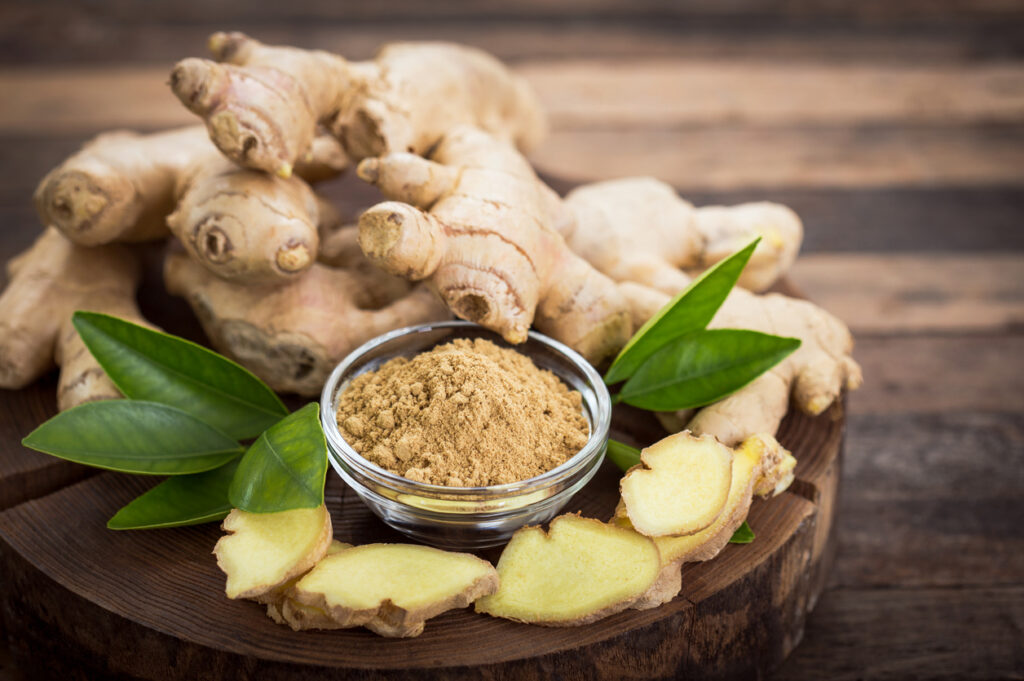
Ginger is one of the most powerful medicinal plants, yet many people only think of it as a spice for cooking. This knobby root has been a staple in traditional medicine for thousands of years, used in Ayurveda, Chinese medicine, and even ancient Greek remedies, according to MedicalNewsToday. What makes ginger so special is its active compounds, gingerol and shogaol, which have strong anti-inflammatory, antioxidant, and digestive-supporting properties. If you suffer from indigestion, bloating, or nausea, ginger can be a game-changer. Studies show that it’s just as effective as motion sickness pills in reducing nausea from travel, pregnancy, or even chemotherapy.
But ginger’s benefits don’t stop there. If you deal with chronic pain, especially from arthritis or muscle soreness, adding ginger to your diet could provide significant relief. It helps reduce inflammation in the body, which is at the root of many diseases, including joint pain, heart disease, and even certain cancers. You can brew fresh ginger tea, add it to smoothies, or use it in soups and stir-fries. If you’re serious about its healing effects, taking a concentrated ginger extract or supplement can offer even more powerful benefits. No matter how you use it, this humble root is a natural medicine cabinet in itself.
2. Turmeric: The Golden Healer with Powerful Anti-Cancer Properties
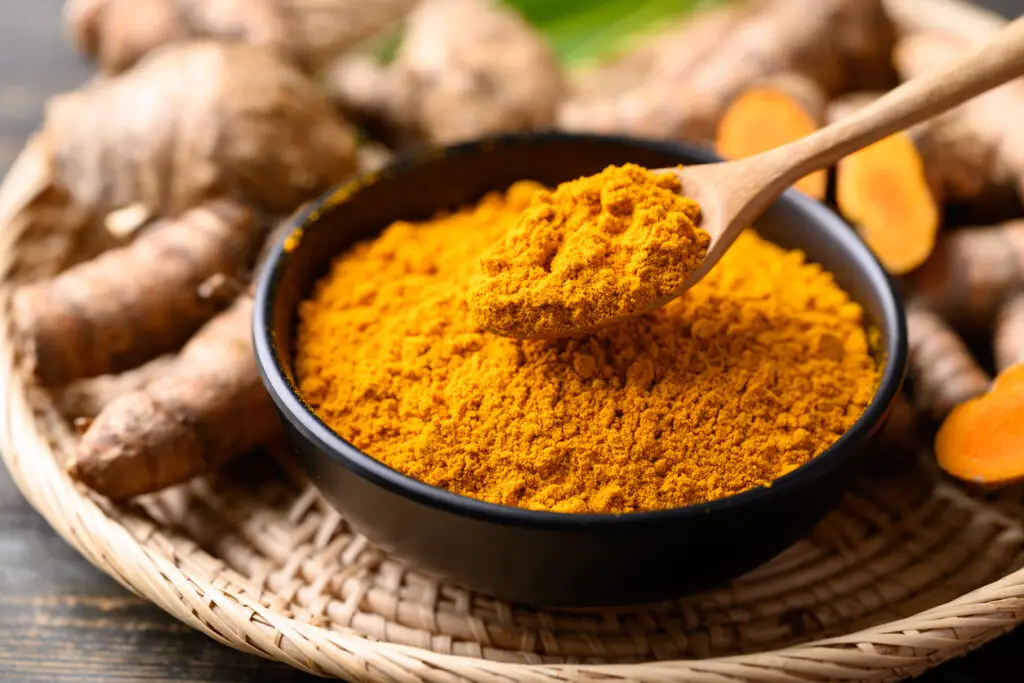
Turmeric isn’t just a spice that gives curry its rich yellow color—it’s one of the most potent healing plants on the planet. Its active compound, curcumin, has been widely studied for its anti-inflammatory, antioxidant, and even cancer properties, according to Healthline. Chronic inflammation is at the root of many modern diseases, including arthritis, heart disease, Alzheimer’s, and even cancer. Curcumin helps combat this by blocking inflammatory pathways in the body and neutralizing harmful free radicals. This is why turmeric is often recommended for people with joint pain, autoimmune disorders, and even depression, as inflammation plays a big role in all of these conditions.
The challenge with turmeric is that it isn’t easily absorbed by the body. However, when combined with black pepper (which contains piperine), absorption increases by up to 2000%! To get the most out of turmeric, try adding it to soups, rice, smoothies, or golden milk (a mix of turmeric, coconut milk, and honey). If you’re using it for serious health benefits, turmeric supplements with added piperine are the best option. A daily dose of turmeric can reduce pain, slow aging, and boost brain function, making it one of the most powerful natural medicines available.
3. Garlic: Nature’s Antibiotic That Strengthens Immunity
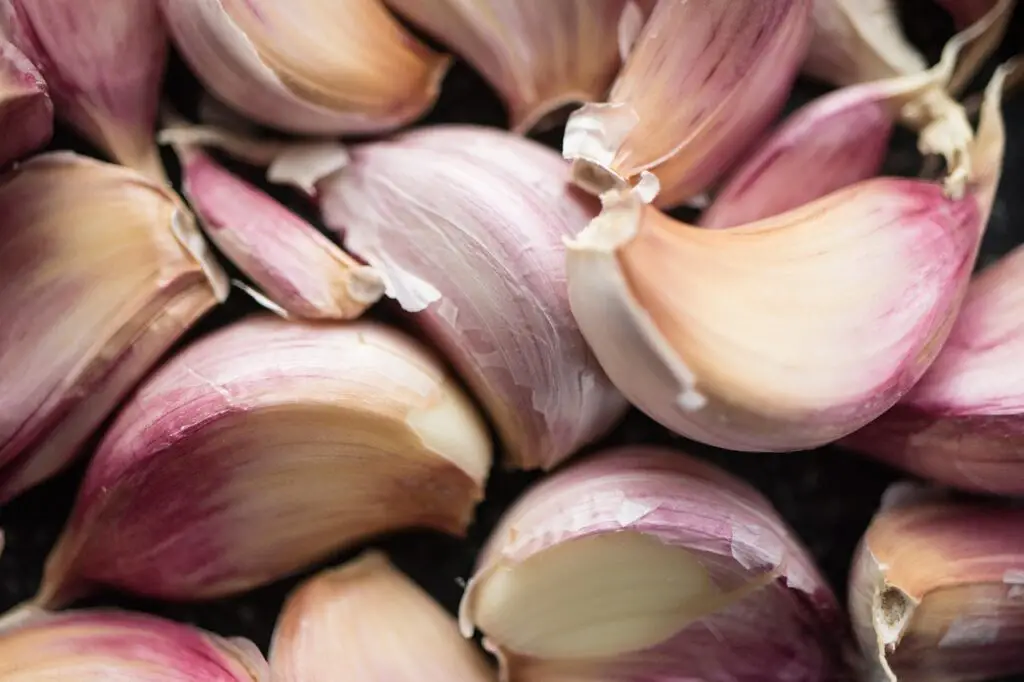
Garlic has been called “nature’s antibiotic” for good reason. It has been used for centuries to fight infections, boost the immune system, and even lower blood pressure, according to BBC Good Food. The secret lies in its active compound, allicin, which gives garlic its strong smell and powerful medicinal properties. Studies have shown that garlic can reduce the severity and duration of colds and flu, making it a must-have during the winter months. It also has natural antibacterial, antiviral, and antifungal properties, meaning it can help fight off everything from respiratory infections to skin issues like athlete’s foot.
But garlic’s benefits go beyond fighting infections. It’s also excellent for heart health, as it helps lower blood pressure, reduce cholesterol, and improve circulation. In fact, some studies suggest that garlic supplements are as effective as prescription drugs for lowering blood pressure—without the side effects. The best way to get the most benefits? Eat garlic raw or lightly cooked, as heat can destroy some of its active compounds. If you can handle it, crushing a clove and letting it sit for 10 minutes before eating it raw (maybe mixed with honey or lemon) is the most potent way to use it medicinally. You can also find garlic supplements if raw garlic is too strong for your taste.
4. Peppermint: The Instant Fix for Digestion and Headaches
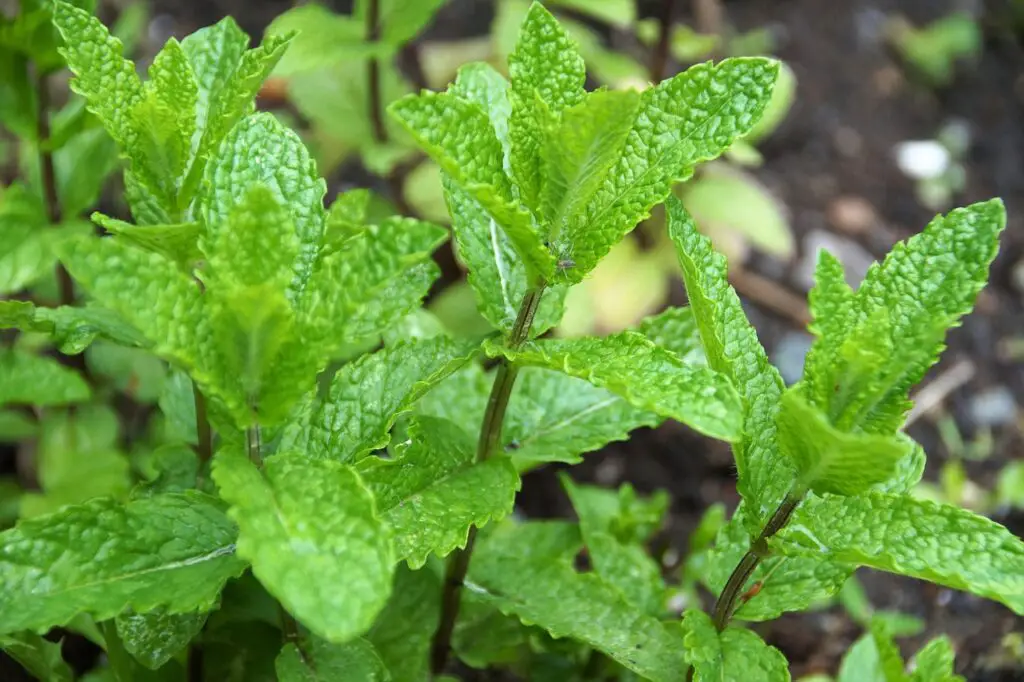
Peppermint isn’t just a refreshing herb for tea or breath mints—it’s a powerful medicinal plant with benefits for digestion, headaches, and respiratory health. One of peppermint’s most well-known benefits is its ability to soothe digestive issues, including bloating, gas, and indigestion, according to Mount Sinai. It works by relaxing the muscles of the digestive tract and reducing spasms, making it incredibly effective for conditions like IBS (Irritable Bowel Syndrome). Studies have found that peppermint oil capsules can significantly reduce IBS symptoms better than some prescription drugs.
Beyond digestion, peppermint is also a natural pain reliever for headaches and muscle tension. Applying peppermint essential oil to the temples can provide quick relief for tension headaches and migraines. Its menthol content helps relax muscles and improve circulation, making it useful for sore muscles or even chest congestion when inhaled. To use peppermint medicinally, drink peppermint tea after meals for digestion, apply diluted peppermint oil to the skin for headaches and pain relief, or inhale the scent to open up nasal passages during a cold. It’s one of the easiest and most accessible healing plants to incorporate into daily life.
5. Aloe Vera: The Miracle Plant for Skin, Digestion, and Inflammation
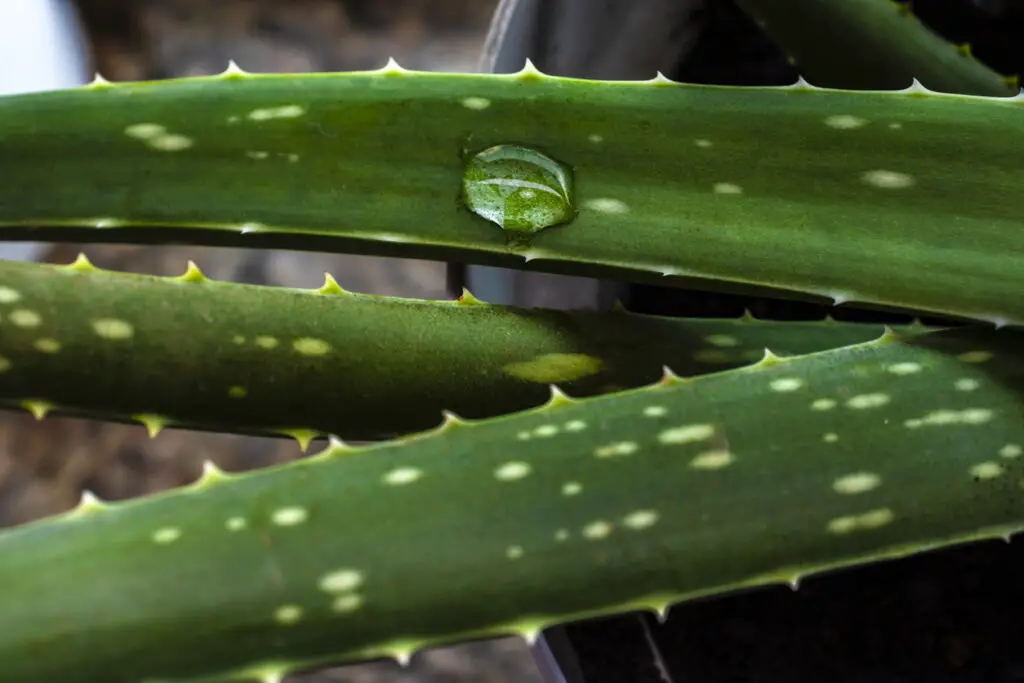
Aloe vera is often associated with soothing sunburns, but this plant has so much more to offer. Inside its thick, spiky leaves is a gel packed with antioxidants, enzymes, vitamins, and minerals that promote healing both inside and out, according to Medical News Today. For skin, aloe vera is a natural remedy for burns, wounds, acne, and eczema, thanks to its cooling, anti-inflammatory properties. It speeds up healing, reduces redness, and hydrates deeply, making it a must-have for skincare.
Internally, aloe vera juice is a powerful digestive healer. It helps soothe acid reflux, gastritis, and even irritable bowel syndrome by coating and protecting the stomach lining. It also acts as a natural detoxifier, helping to flush out toxins, improve liver function, and support gut health. Just be sure to choose pure aloe vera gel or juice without additives, as some commercial brands contain unnecessary sugars or preservatives. Drinking a small amount daily can boost digestion, improve skin clarity, and support immune function all at once.
6. Chamomile: The Calming Flower That Heals From the Inside Out
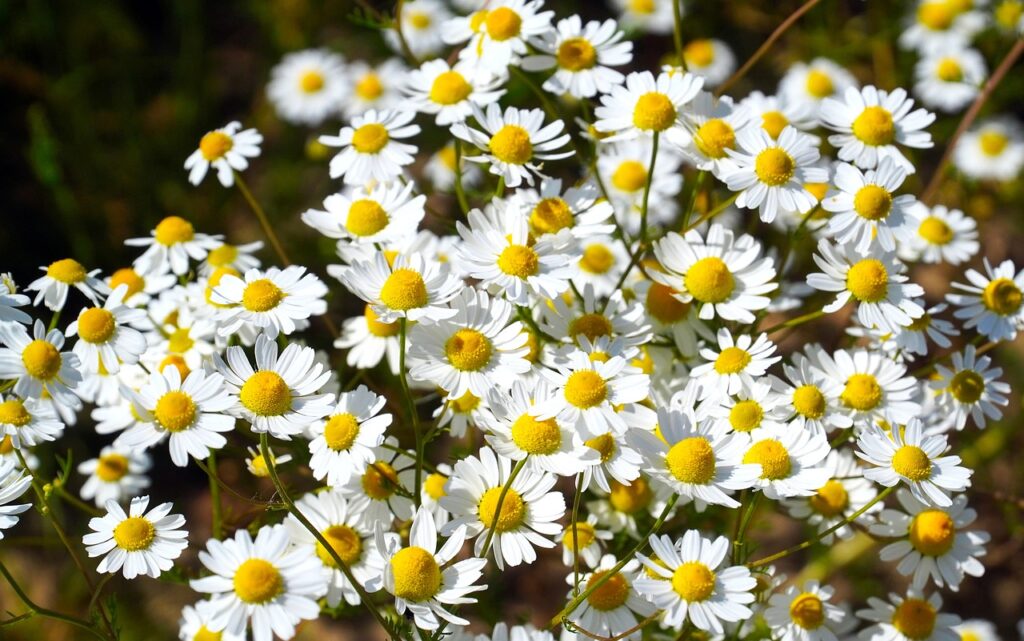
Chamomile is often associated with a warm, soothing cup of tea before bed, but its benefits go far beyond relaxation. This delicate white and yellow flower is packed with anti-inflammatory, antioxidant, and antispasmodic properties, making it a powerhouse for both mental and physical health. One of its most famous benefits is its ability to reduce anxiety and promote better sleep. Chamomile works by interacting with receptors in the brain that help induce relaxation, much like mild sedatives. For those who struggle with insomnia, stress, or restlessness, a cup of chamomile tea before bed can work wonders.
Beyond its calming effects, chamomile is also a natural remedy for digestive issues, muscle cramps, and even skin conditions. If you suffer from bloating, indigestion, or irritable bowel syndrome (IBS), drinking chamomile tea can help relax the muscles of the digestive tract and ease discomfort. Women who experience painful menstrual cramps can also benefit from chamomile’s muscle-relaxing properties. Additionally, chamomile has antibacterial effects, making it excellent for skin health. Applying cooled chamomile tea to irritated skin, acne, or eczema can speed up healing and reduce redness. This small but mighty flower is truly one of nature’s most versatile healers.
7. Echinacea: The Immune-Boosting Powerhouse That Fights Colds and Flu

Echinacea is a vibrant purple flower that has been used for centuries as a natural immune booster and infection fighter. Native American tribes used echinacea to treat wounds, infections, and snake bites, but today, it’s best known for its ability to reduce the severity and duration of colds and flu. Studies have shown that echinacea increases white blood cell production, helping the body fight off infections more effectively. If you tend to get sick often, incorporating echinacea into your routine during cold and flu season can be a game-changer.
But echinacea’s benefits don’t stop at colds—it also has antibacterial, antiviral, and anti-inflammatory effects, making it useful for everything from sore throats to urinary tract infections. Drinking echinacea tea or taking echinacea supplements at the first sign of illness can help stop sickness in its tracks. If you struggle with allergies, echinacea can also help reduce inflammation and strengthen your immune system over time. To get the best results, look for high-quality echinacea supplements or tinctures and take them consistently, especially when you feel under the weather.
8. Ashwagandha: The Stress-Relieving Adaptogen for a Stronger Body and Mind
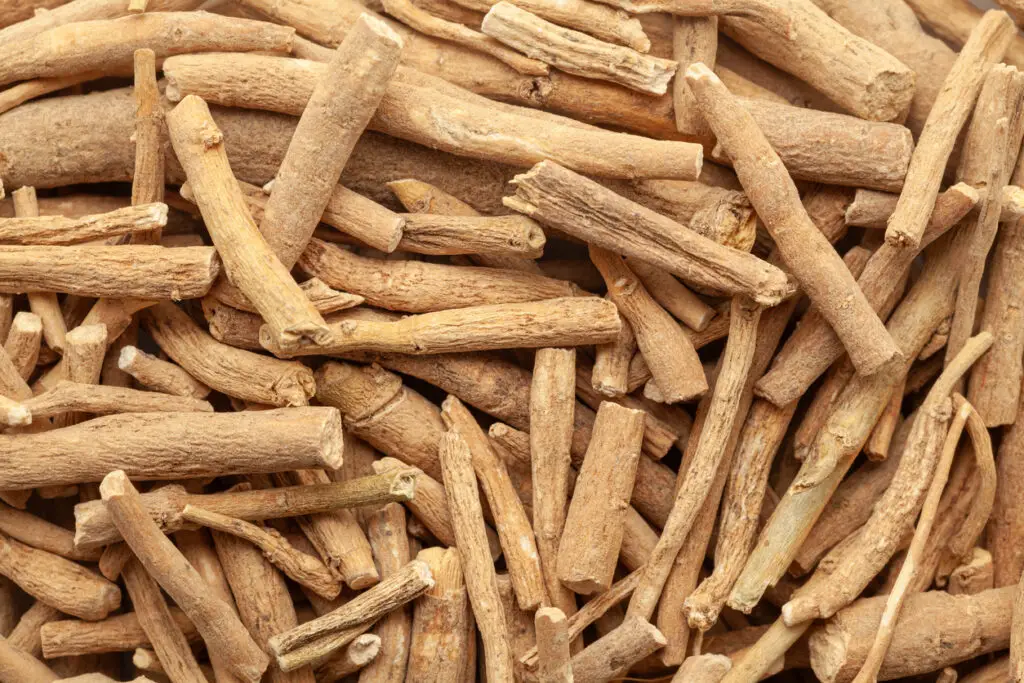
Ashwagandha is one of the most powerful herbs in Ayurvedic medicine, known for its ability to reduce stress, boost energy levels, and balance hormones. This ancient root belongs to a special category of plants called adaptogens, which help the body adapt to stress and restore balance. If you constantly feel overwhelmed, fatigued, or mentally drained, ashwagandha can help regulate your cortisol levels (the hormone responsible for stress) and bring a sense of calm and focus. Many people find that after taking Ashwagandha for a few weeks, they feel less anxious, sleep better, and have more energy throughout the day.
But ashwagandha doesn’t just benefit the mind—it also strengthens the immune system, supports thyroid function, and even enhances muscle recovery. Athletes and fitness enthusiasts often take Ashwagandha because it helps reduce inflammation, improve endurance, and support muscle growth. Women struggling with hormonal imbalances, such as PCOS or adrenal fatigue, can also benefit from its hormone-balancing effects. Whether you take it as a capsule, tincture, or powder mixed into tea or smoothies, this adaptogenic herb is a powerful tool for restoring overall well-being.
9. Holy Basil (Tulsi): The “Elixir of Life” That Fights Stress and infection
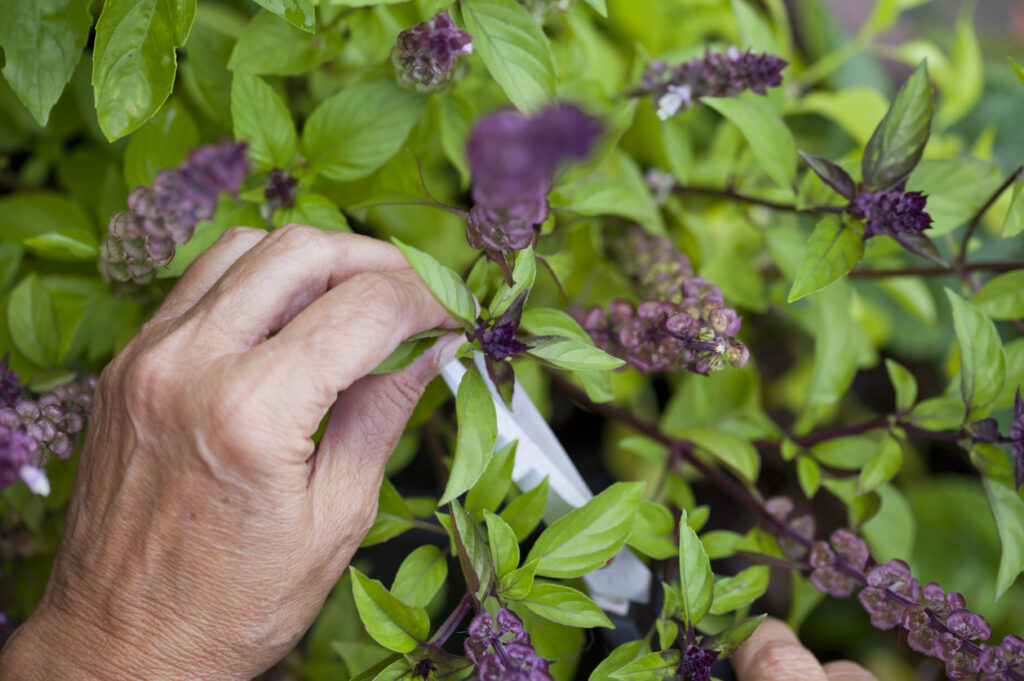
Holy basil, also known as tulsi, is considered one of the most sacred herbs in India, often called the “Elixir of Life” due to its vast health benefits. Unlike regular basil, tulsi has adaptogenic properties, meaning it helps the body resist stress, balance hormones, and improve mental clarity. If you often feel anxious, burnt out, or have trouble concentrating, tulsi tea can help calm the nervous system while boosting focus and energy. It’s a fantastic natural remedy for those who experience chronic stress or mental fatigue.
Aside from its stress-relieving effects, holy basil is also a natural antibiotic, antiviral, and antifungal agent. It has been used in Ayurvedic medicine to treat respiratory infections, support lung health, and boost immunity. If you suffer from asthma, allergies, or frequent colds, tulsi tea can help clear congestion and strengthen the lungs. Some studies even suggest that tulsi helps regulate blood sugar levels, making it beneficial for people with diabetes. Drinking a warm cup of tulsi tea daily is an easy way to harness the healing power of this incredible plant.
10. Dandelion: The Liver-Cleaning Weed You Shouldn’t Ignore

Most people see dandelions as annoying weeds, but these bright yellow flowers are actually one of the most powerful detoxifying plants in nature. Every part of the dandelion—root, leaves, and flowers—offers health benefits, especially for the liver, digestion, and kidneys. Dandelion root is particularly valued for its ability to support liver detoxification, improve digestion, and flush out excess toxins from the body. If you frequently experience bloating, sluggish digestion, or skin issues like acne, your liver might need extra support—and dandelion can help.
Beyond liver health, dandelion is also a natural diuretic, helping to flush out excess water and reduce bloating. It’s often used to support kidney health and prevent urinary tract infections. The leaves are packed with vitamins A, C, and K, as well as iron and potassium, making them a great addition to salads or smoothies. You can brew dandelion root tea, take it as a supplement, or even roast the root to make a caffeine-free coffee substitute. Instead of pulling dandelions out of your yard, consider adding them to your health routine!
11. Rosemary: The Brain-Boosting Herb That Enhances Memory
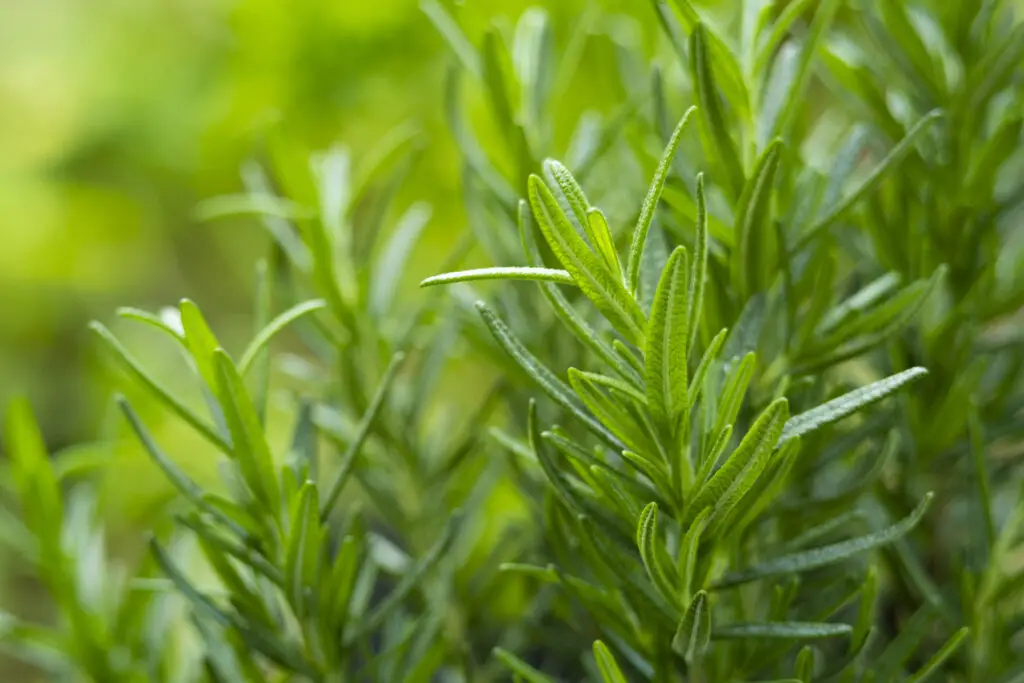
Rosemary isn’t just a delicious culinary herb—it’s also a powerful brain booster that can improve memory, focus, and cognitive function. Ancient scholars would often wear rosemary wreaths during exams to enhance concentration and mental clarity, and modern research confirms that rosemary can stimulate brain function and even reduce the risk of Alzheimer’s disease. The secret lies in its active compounds, which improve circulation to the brain and protect against oxidative stress.
Beyond brain health, rosemary is also great for digestive health, circulation, and immune function. If you struggle with brain fog or fatigue, try diffusing rosemary essential oil, drinking rosemary tea, or adding fresh rosemary to your meals. Some studies even suggest that inhaling the scent of rosemary can instantly boost cognitive performance and mental energy. So next time you’re feeling sluggish, reach for rosemary instead of caffeine!
12. Lavender: The All-Purpose Healer for Stress, Sleep, and Skin
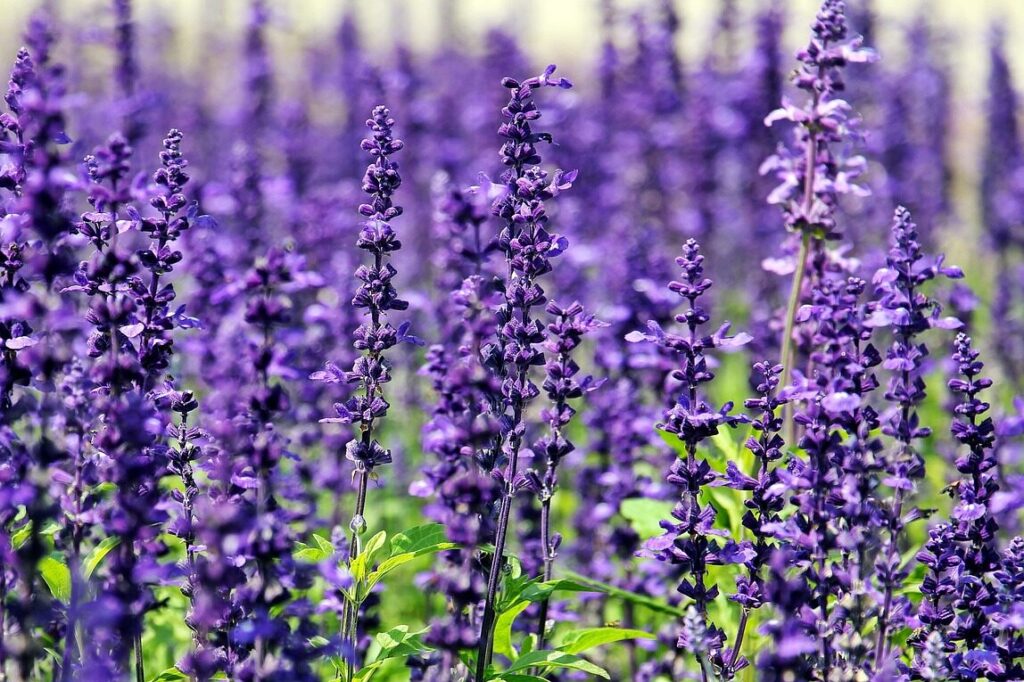
Lavender is often associated with relaxation, but this fragrant purple flower does much more than just smell good. It has been used for centuries as a natural remedy for anxiety, insomnia, pain relief, and even skin healing. The essential oils found in lavender contain linalool and linalyl acetate, which have calming and anti-inflammatory properties that work directly on the nervous system. Studies have shown that inhaling lavender oil or drinking lavender tea can significantly reduce stress and improve sleep quality, making it a natural alternative to sleeping pills and anti-anxiety medications. If you struggle with racing thoughts, restlessness, or frequent wake-ups at night, adding lavender to your bedtime routine can help you sleep more deeply and wake up feeling refreshed.
Beyond mental health, lavender is also incredibly effective for pain relief, wound healing, and skin conditions. It has powerful antibacterial and antifungal properties, making it useful for treating cuts, burns, acne, and even eczema. Applying diluted lavender oil directly to the skin can help reduce inflammation, prevent infection, and speed up healing. It’s also a natural headache reliever—massaging a few drops of lavender oil onto the temples can help ease migraines and tension headaches. To incorporate lavender into your daily life, try diffusing the essential oil, using lavender-infused skincare products, or adding dried lavender to tea or bathwater. This versatile herb is truly one of nature’s best all-in-one healers.
13. Ginseng: The Ultimate Energy Booster and Longevity Tonic
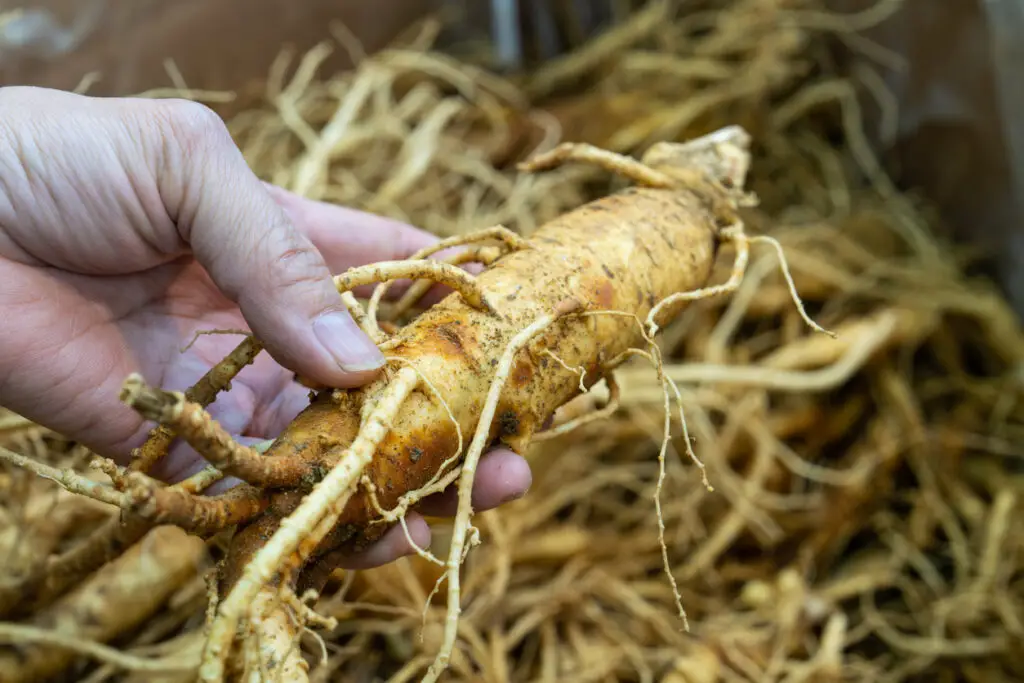
Ginseng is often called the “King of Herbs” in traditional Chinese medicine, and for good reason. This powerful root has been used for thousands of years as a natural energy booster, immune system enhancer, and anti-aging remedy. Unlike caffeine, which gives you a quick burst of energy followed by a crash, ginseng works by improving endurance, increasing oxygen uptake, and supporting adrenal function, helping the body maintain steady energy levels throughout the day. If you constantly feel fatigued, burnt out, or mentally foggy, ginseng can help restore balance and boost your stamina without overstimulating the nervous system.
But ginseng’s benefits go beyond just energy—it’s also a well-known immune system booster, brain enhancer, and stress reducer. Studies have shown that ginseng improves memory, focus, and cognitive function, making it an excellent supplement for students, professionals, and older adults looking to keep their minds sharp. It also contains potent antioxidants that help reduce inflammation, slow down aging, and support heart health. Additionally, ginseng has been used for centuries as a natural remedy for sexual health and hormone balance, particularly in men struggling with low libido or erectile dysfunction. To get the most out of ginseng, you can take it as a tea, supplement, or even chew on the raw root. Whether you’re looking to increase energy, strengthen your immune system, or support long-term health, ginseng is one of the most powerful plants in nature’s pharmacy.


